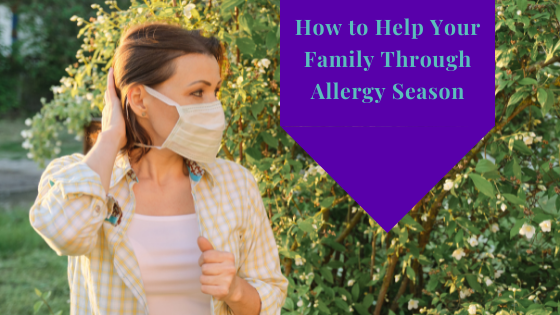Disclosure: Always consult a health care professional. Read the full disclosure policy here.
Around 8% of Americans suffer from seasonal allergy symptoms during certain seasons. These symptoms are likely to occur when your immune system reacts to an outdoor allergen such as pollen. The symptoms include a runny nose and ear congestion. Your throat, ear canals, or sinuses may become itchy when experiencing a seasonal allergy. To ensure that you or your family members do not experience these symptoms, you need to do several things. Below are more details on these things.
Encourage Your Family Members to Stay Indoors
Pollen is the biggest cause of seasonal allergic reactions. During spring, plants such as bluegrass, Bermuda grass, and red top grass release pollen. Trees such as oak, maple, birch, walnut, and poplar also release pollen during this season.
You and your family members are likely to come into contact with the released pollen when you go outside your house. To avoid getting allergy symptoms, you should stay indoors when pollen counts are high and encourage your family members to do so. If you have to go outside, go later in the day as allergen counts are usually low during that time. You should, however, not spend too much time outdoors.
Keep Pollen Out of Your Home
You should keep pollen out of your home if you or your family members often experience seasonal allergy symptoms. You can achieve this by keeping your windows and doors closed when the pollen count in the air is usually high. You should also close your doors and windows when the wind is blowing.
You can also keep pollen out of your home by washing your hands and face when you come into the house. You should also change your clothes after getting in the house as you could be a pollen carrier. You should encourage the other family members to do the same.
Ensuring that your indoor pets stay in the house will also help keep pollen out of your home. These pets can carry pollen into the house. If they happen to get out of the house, wipe their paws and body before letting them get in the house.
Ensure That the Air Inside Your Home Is Not Dry
Dry air can pull moisture from your nose and mouth, leaving your throat and nasal passages dry. When your throat and nasal passages are dry, allergens are likely to irritate your airways, making you experience the symptoms associated with seasonal allergies.
To ensure that none of your family members experiences these symptoms, keep moisture levels in your home high. You can achieve this by using a clean humidifier. However, when using the humidifier, ensure that humidity levels do not go over 40%, as such high levels can encourage mold growth. You should also encourage everyone in your home to stay hydrated.
Ensure That Your HVAC System Has a Good Air Filter
An air filter is one of the basic components of an HVAC system. This component protects the HVAC system from damage caused by dust, pet dander, and pollen. An air filter also helps ensure that the air flowing in a home is free of impurities such as pollen, dust, pet dander, and mold.
To ensure that your family members do not experience allergy-related symptoms, tell your HVAC contractor to install a good air filter in your HVAC system. For instance, the contractor should install one of the available 20x20x1 air filters. You should, however, learn more about picking the right 20x20x1 air filter before buying such an air filter.
During allergy seasons, you should ensure that none of your family members experiences allergy-related symptoms. You can achieve this by keeping windows and doors closed when the pollen count in the air is high. Using good quality air filters and keeping your indoor air moist will also help avoid getting these symptoms.
About the Author
Emily Howard
Guest Blogger
This article is written by a guest blogger.
If you found this post useful, please Pin It!

Hi, before you go…
Don’t forget to join the email list!
Don’t forget to join in on the conversation on social media.![]()
![]()
![]()
![]()
![]()


